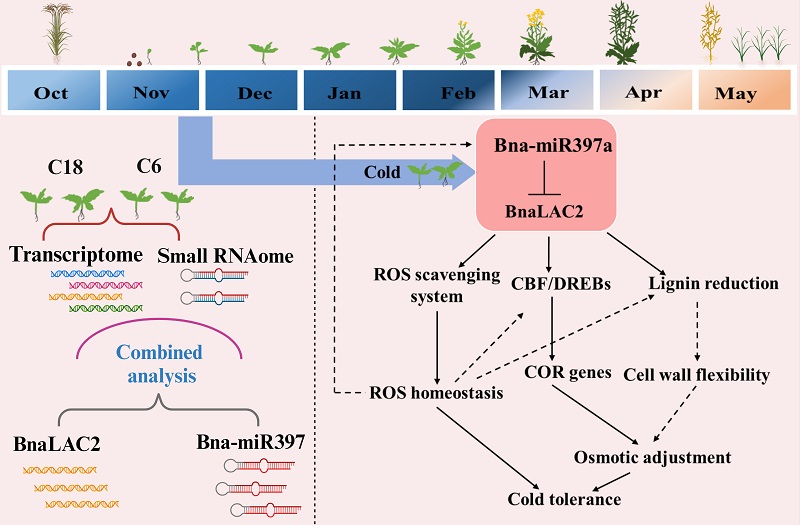The Oil Crops Research Institute has made a breakthrough in deciphering the genetic code for cold resistance in rapeseed
In a recent collaboration with Yangzhou University, the Institute’s team specializing in the stress biology and resistance improvement of oil crops has identified a crucial set of genes that greatly enhance rapeseed’s ability to withstand cold temperatures. This discovery sheds light on the molecular mechanisms behind rapeseed’s cold tolerance, offering a technological boost to improve rapeseed’s resilience to cold and to optimize the use of winter fallow fields in China. The findings have been published in the esteemed “Plant Biotechnology Journal.”
The “Rice-Rapeseed Rotation” system is a key strategy for maximizing the use of fallow fields during winter in the Yangtze River basin. However, delays in harvesting the late rice crop often lead to rapeseed being sown in cold conditions, which can result in frost damage and negatively impact both rapeseed yields and farmers’ incomes. Addressing this challenge, the research team employed advanced multi-omics analysis, a comprehensive approach integrating various biological data, to pinpoint the essential genes regulating rapeseed’s cold resistance. They have developed a theoretical model that explains how these genes enhance the plant’s ability to withstand frost by strengthening cell structures and boosting the antioxidant system. This model has been shown to be effective across cruciferous plants, making it a significant tool for enhancing agricultural productivity in the Yangtze River region and beyond.
The research has been supported by significant funding from various Chinese government initiatives, including the National Key Research and Development Program, the National Natural Science Foundation of China, the Science and Technology Innovation Project of the China Academy of Agricultural Sciences, and the Hubei Provincial Key Research and Development Program.


